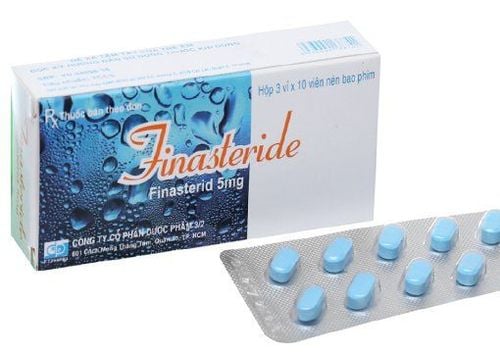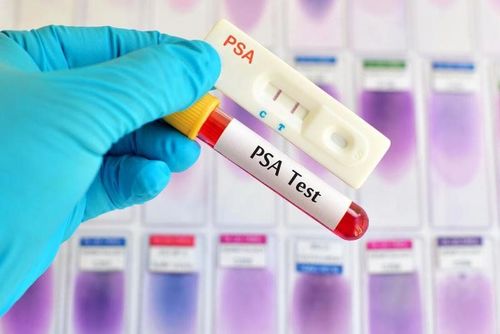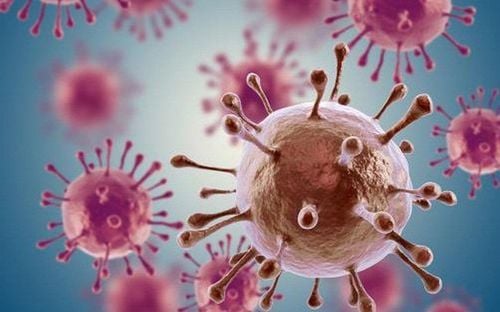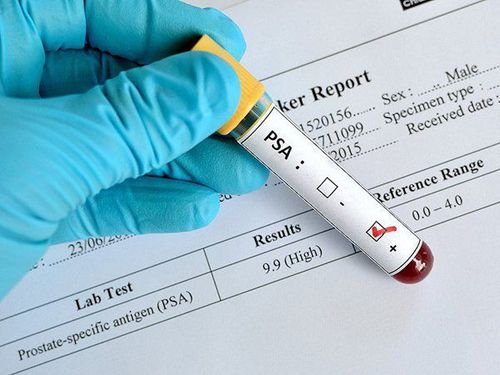This is an automatically translated article.
The Prostate-specific antigen (PSA) test is a blood test that analyzes the levels of protein that the prostate gland produces. In men with prostate cancer often carry high levels of this protein, besides high PSA does not mean cancer.1. Causes of PSA increase
Some other health conditions also cause prostate antigen levels to rise. In a few cases, PSA is only temporarily elevated, and is not related to any disease at all.
Elevated PSA: In addition to prostate cancer, other factors can cause high PSA levels. Including:
Age : The PSA index in the body tends to increase gradually with age. Prostatitis: Usually caused by a bacterial infection. Prostatitis can also be a chronic problem. Men with prostate cancer may experience difficulty urinating, pain when urinating, fever, feeling pressure in the rectum, difficulty ejaculating, changes in sexual function. Benign prostatic hyperplasia (BPH): An enlarged prostate, which can increase PSA levels. BPH is a common condition in older men. Due to medical procedures: Catheterization, or insertion of an instrument into the urethra to examine the prostate gland, can cause a false positive in the PSA test. Vigorous exercise: Vigorous exercise 1-2 days before the PSA test can lead to inaccurate results. Ejaculation: Ejaculating within the 48-hour period before a PSA test can cause PSA levels to rise temporarily. Therefore, it is advisable to abstain from sex or masturbation 2-3 days before the PSA test. PSA: The cells in the prostate gland produce PSA, and in normal people, this level is about 4 nanograms per milliliter (ng/mL) of blood. Increased PSA in the blood: Most men with prostate cancer have a PSA reading higher than 4ng/mL. However, there are about 15% of cases of prostate cancer even though the PSA is lower than 4 ng/mL.
Low PSA: A low PSA, usually less than 4 (ng/mL) blood indicates that a man does not have prostate cancer. However, higher PSA levels with age and race can be a warning sign of cancer (PSA may also increase spontaneously with age).
However, there are many factors that will affect PSA levels, so a PSA test alone is not enough to diagnose prostate cancer. If your PSA levels are high, your doctor will likely recommend a prostate biopsy or other specialized tests to determine if you have cancer.
Trắc nghiệm: Thử hiểu biết của bạn về bệnh ung thư
Ung thư là nguyên nhân gây tử vong hàng thứ 2 trên thế giới. Thử sức cùng bài trắc nghiệm sau đây sẽ giúp bạn có thêm kiến thức về yếu tố nguy cơ cũng như cách phòng ngừa bệnh ung thư.
Bài dịch từ: webmd.com
2. The relationship between PSA and prostate cancer
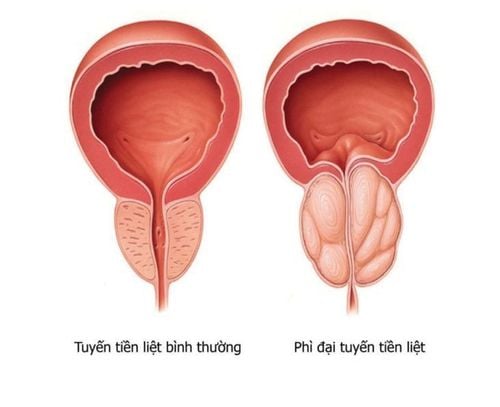
Men over 50 often have prostate cancer. Tumors, in general, are of two types:
Malignant tumors, caused by enlargement of the gland - Prostata Adenom & benigne Prostatitis includes:
Painful ejaculation Blood in semen or urine Pain in hips, pelvis, back, or thighs Weak urine stream Urinary incontinence, or urgent need to urinate Difficulty getting an erection or maintaining Experts recommend that men, especially those over 40, should be screened for prostate cancer with periodic PSA tests to detect prostate cancer early. If prostate cancer is detected in time, the disease has not spread, and thanks to surgical removal of the entire prostate, seminal vesicles and ejaculatory ducts, the chance of cure is 100%. This is one of the major surgery - major surgery - of the anatomy of the urethra.
Vinmec Times City International General Hospital has implemented PSA testing techniques for cancer diagnosis and prostate cancer screening in men over 40 years old, especially those diagnosed with hypertrophy. prostate gland included in the male health check program. Customers register for a general health check-up package at Vinmec International General Hospital for timely medical examination and screening.
Customers can go directly to Vinmec Times City to visit or contact hotline 0243 9743 556 for support.
SEE ALSO:
How much does PSA indicate the risk of prostate cancer? How much PSA indicates the risk of prostate cancer? What is prostate cancer screening?




